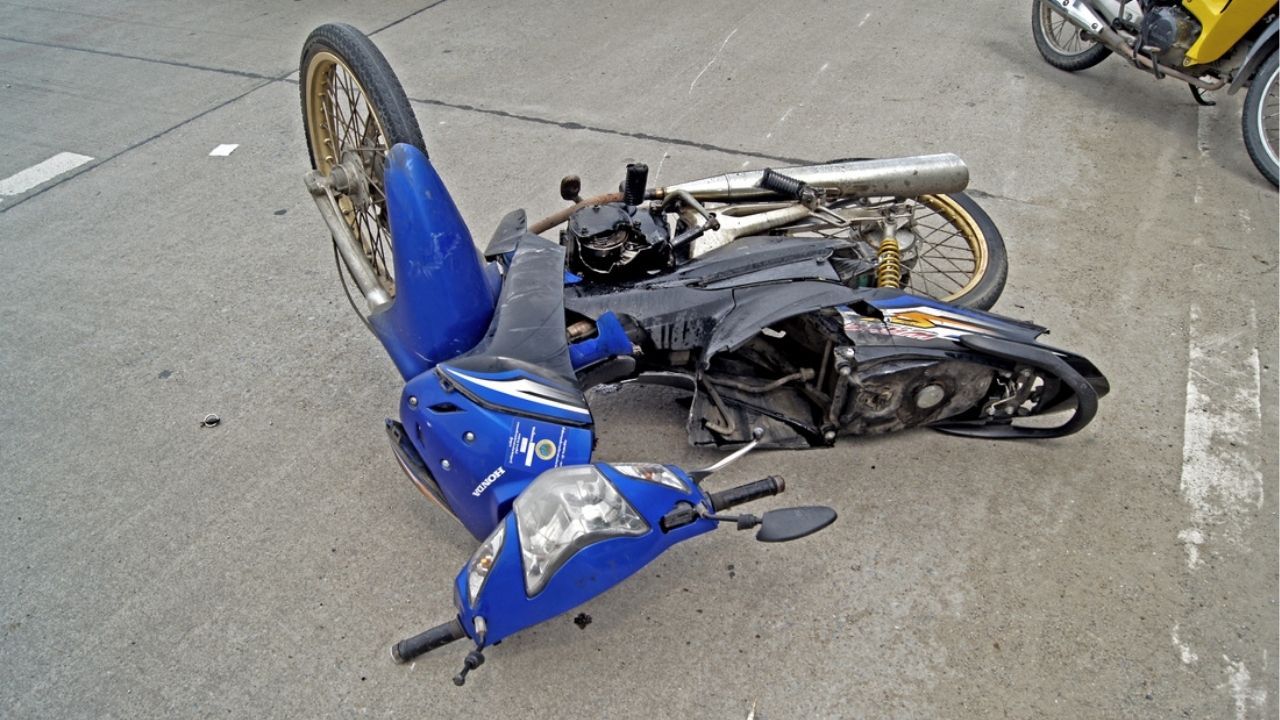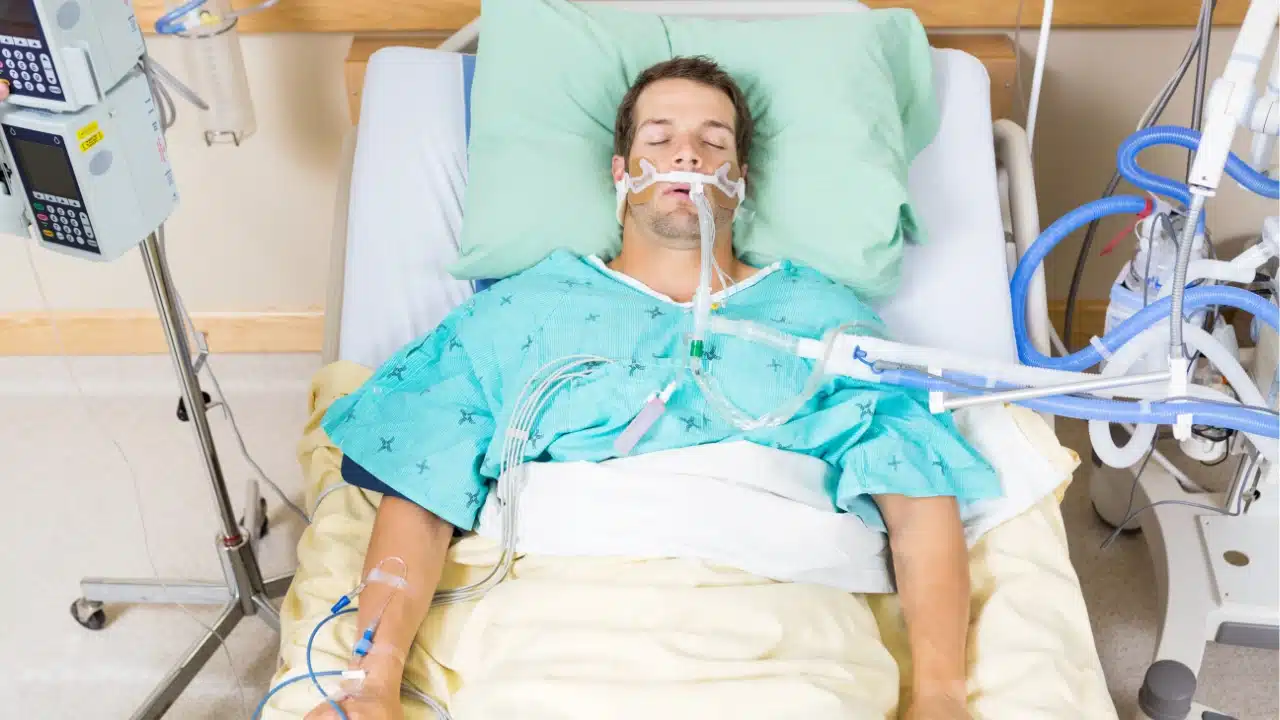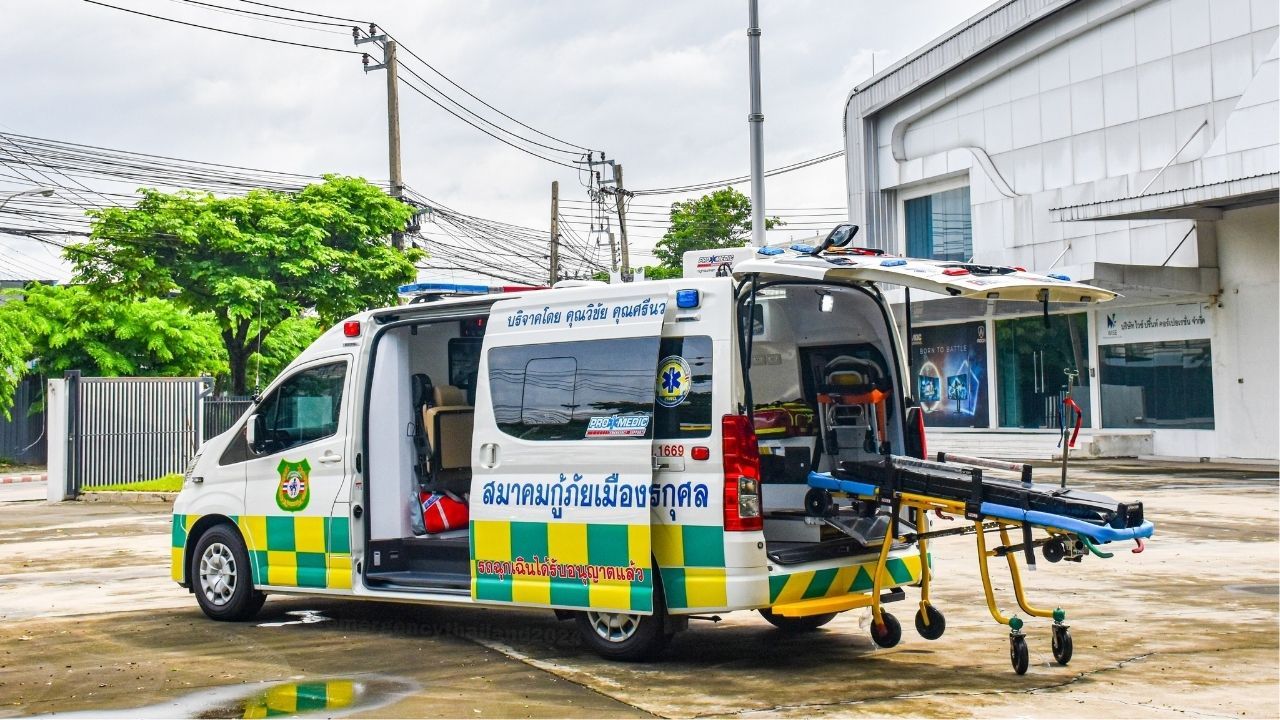What are the most common medical emergencies for expats in Thailand
From motorcycle crashes to tropical diseases, here’s what expats in Thailand should watch for and how to stay protected

The Thaiger key takeaways
- The most common medical emergencies for expats in Thailand include motorcycle accidents, tropical diseases, and food or water-borne illnesses.
- Air pollution and heat-related conditions like heatstroke also pose serious seasonal health risks, especially in northern and coastal areas.
- Having reliable medical insurance, such as SafetyWing, helps cover emergencies, hospital care, and evacuation, giving expats peace of mind.
Thailand is home to around two million expats in 2025, drawn by its warm weather, low cost of living, lively culture, and growing digital nomad community. Many choose to stay long-term, whether for work, retirement, or lifestyle.
While the country offers high-quality healthcare, especially in big cities, expats can still face unexpected health risks common in tropical countries. That is why having reliable medical insurance from SafetyWing, is important. It helps ensure quick access to accredited hospitals and protects against costly medical bills, allowing expats to live comfortably and confidently in Thailand.
Most common medical emergencies for expats in Thailand
| Section (Click to jump) | Short Summary |
|---|---|
| Accident-related emergencies | Motorcycle crashes are the top cause of injuries among foreigners. Learn key safety tips and how SafetyWing covers emergency medical care. |
| Tropical and vector-borne diseases | Dengue fever and malaria remain risks in Thailand. Discover prevention methods, vaccination advice, and when to seek medical help. |
| Respiratory emergencies | Air pollution peaks in northern Thailand during the burning season. Find out how to protect your lungs and manage health risks. |
| Food and water-borne illnesses | From typhoid to E. coli, food and water contamination is common. Learn safe eating habits and when to see a doctor. |
| Other medical emergencies | Snake bites, jellyfish stings, heatstroke, and mental health issues — here’s how to handle Thailand’s most overlooked emergencies. |
| Emergency contacts for expats | Keep these numbers handy: 1669 for medical emergencies, 1155 for tourist police, and details for top private hospitals. |
Accident-related emergencies

Motorcycle accidents are the most common cause of serious injuries and deaths among foreigners in Thailand. Each year, thousands of people lose their lives in road crashes, and about 74% of those deaths involve motorcyclists. In 2024 alone, more than 14,000 people died in motorcycle-related accidents, showing how dangerous the roads can be.
Many accidents happen because of:
- Reckless or careless driving
- Poor road conditions
- Inexperienced driver(s)
From 2020 to 2024, about 84% of injured motorcyclists were not wearing helmets, greatly increasing their risk of serious injury or death.
If an accident happens, calling 1669 will connect you to an ambulance. Major hospitals in tourist areas and cities have 24-hour emergency rooms ready to provide urgent care.
For tourists and expats, motorcycle safety should be a top priority. To reduce risks:
- Always wear a crash helmet
- Avoid speeding and risky behaviour
- Be cautious on unfamiliar or wet roads
Having reliable insurance, such as SafetyWing, is also important. SafetyWing covers emergency medical treatment for accidents and helps expats access private hospitals quickly, without paying large bills upfront. It gives peace of mind and financial protection when the unexpected happens.
Tropical and vector-borne diseases

Tropical and vector-borne diseases are still a major health concern for expats in Thailand, especially in rural areas and during the rainy season. Dengue fever is the most common mosquito-borne disease, with nearly 20,000 reported cases in 2025.
Other infections like chikungunya and malaria are also found in forested and southern regions. Diseases such as rabies, Japanese encephalitis, and leptospirosis remain risks, often linked to animal bites or contact with contaminated water during floods.
To stay safe, expats should take preventive steps:
- Get vaccinated before long-term stays or rural travel
- Use insect repellent and mosquito nets
- Wear long-sleeved clothes, especially in high-risk areas
- Avoid contact with stray animals
If symptoms such as high fever, muscle pain, or unusual fatigue appear, seek medical attention immediately. Early treatment can prevent serious complications.
The Thai Ministry of Public Health recommends strong mosquito protection and vaccination for those living in high-risk areas. Expats who spend time outdoors or travel across provinces should be extra cautious during the rainy months.
Respiratory emergencies

Northern Thailand, especially Chiang Mai, faces serious air pollution during the burning season from February to April. Farmers often burn fields to clear land, releasing thick smoke and fine dust into the air. This causes the Air Quality Index (AQI) to rise above 300, reaching levels considered very unhealthy or even hazardous. The smoke becomes trapped in the city’s valley, making it hard for the air to clear and worsening conditions for people with asthma, COPD, or bronchitis. Many residents and expats experience coughing, sore throats, and eye irritation during this time.
Common seasonal illnesses such as influenza and pneumonia also increase, making this period especially challenging for people with weak lungs or chronic health issues.
To stay safe during the burning season:
- Wear a high-quality mask (N95 or KN95) when outdoors
- Keep air purifiers running indoors
- Take regular medications as prescribed
- Limit outdoor activities on high-pollution days
- Check air quality apps daily before going out
Expats with breathing problems should plan carefully, including considering short-term relocation during heavy pollution periods.
Food and water-borne illnesses

Contaminated food and water are common causes of illness for expats and travellers in Thailand. These can lead to diarrhoea, E. coli infection, salmonella, and typhoid fever. Such illnesses often come from eating food that is undercooked, stored improperly, or prepared in unsanitary conditions. Drinking untreated tap water can also cause infection. Every year, Thailand reports tens of thousands of foodborne illness cases, often linked to street food stalls, local markets, or poor hygiene in rural areas. Severe cases can cause dehydration, sometimes requiring IV fluids at a hospital.
To stay healthy, it’s important to follow safe food and water habits:
- Drink bottled or filtered water only
- Avoid ice cubes from unknown sources
- Eat freshly cooked food and avoid food that has been sitting out.
- Wash hands thoroughly before eating
- Choose clean and reputable restaurants
If you experience symptoms like vomiting, diarrhoea, or high fever, seek medical help immediately.
Other medical emergencies in Thailand

- Snake bites and jellyfish stings: Common in rural or coastal areas. Seek medical help immediately. Hospitals in affected regions follow clear treatment protocols, and facilities like the Queen Saovabha Memorial Institute in Bangkok provide species-specific antivenoms.
- Mental health crises: Increasingly recognised among expats. English-speaking counsellors and mental health professionals are available in major cities such as Bangkok and Chiang Mai to help those dealing with stress, anxiety, or crises.
- Heatstroke and dehydration: Common during Thailand’s hottest months (March–May). Stay hydrated, avoid outdoor activities during peak heat, and seek medical care if you experience dizziness, weakness, or confusion.
Emergency contacts for expats

- Ambulance / medical emergencies: 1669 — connects to nationwide rescue and ambulance services available 24/7.
- Tourist Police (foreign assistance): 1155—provides round-the-clock help for foreigners, including translation and general support.
- Hospitals: Private hospitals in Bangkok, Phuket, and Chiang Mai meet international standards and accept most expat insurance plans, including SafetyWing.
Staying protected with SafetyWing

SafetyWing is a great insurance option for expats and digital nomads living in Thailand. It offers flexible and reliable medical coverage designed for people who live or work abroad. The plan covers many types of medical emergencies even in Thailand, including accidents, sudden illnesses, and hospital stays in Thailand or overseas.
One of its most valuable features is emergency evacuation coverage, which allows policyholders to be safely transferred to another country if they need specialised treatment not available locally. This gives expats peace of mind, knowing they can always get the right care when needed, especially during medical emergencies in Thailand.
Key benefits of SafetyWing:
- Covers accidents, illnesses, and hospitalisation
- Includes emergency evacuation for advanced treatment abroad
- Works on a simple monthly subscription that can be managed online
- Easy and quick claims process
- Designed for long-term travellers, expats, and digital nomads
With SafetyWing, expats in Thailand can access quality healthcare without worrying about high medical bills. It’s an affordable and convenient choice for anyone wanting dependable protection while living or travelling internationally.
Living in Thailand offers a great lifestyle for expats, but it also comes with some health risks. Common emergencies include road accidents, tropical diseases, air pollution, food poisoning, and heat-related illnesses. It’s important to know key emergency numbers such as 1669 for ambulances and 1155 for the Tourist Police.
Private hospitals in cities like Bangkok, Phuket, and Chiang Mai provide high-quality care and accept most expat insurance plans. Having reliable coverage like SafetyWing helps cover accidents, illnesses, and hospital stays in Thailand and abroad. To see what SafetyWing includes and how it protects you for just a few dollars a day, visit What you actually get for US$2 a day with SafetyWing insurance
Latest Thailand News
Follow The Thaiger on Google News:


























